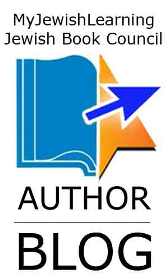In her last post, Ellen Frankel looked at how to make the Bible PG. She is guest-blogging all week for MyJewishLearning and JBC.
 What is Jewish literature?
What is Jewish literature?
What makes a book or its writer Jewish? What’s “in” and what’s “out” of the contemporary Jewish syllabus? Who gets to make such judgment calls? Should they even be made at all?
Some time ago, an Orthodox scholar I know suggested a different way of thinking about this issue. He pointed to a distinction between books that Jews “read” and those that they “study,” i.e., secular vs. sacred texts. In my mind, this distinction largely hinges on the question of the authority we invest in books. Those that we read — for pleasure, for a course, to make ourselves culturally conversant — exercise little authority over us. But those that we study — for moral instruction, for answers to ultimate questions, to inspire us and develop our character — guide our lives and matter profoundly to us. If a particular book is itself in conversation with other Jewish books, we then become part of that conversation as it becomes part of us. If a book is not in dialogue with other Jewish books, then our reading will lead us away into a different conversation. Whether or not we ever find our way back into the Jewish conversation is anyone’s guess.
In a review of Ruth Wisse’s book, The Modern Jewish Canon: A Journey Through Language and Culture
Thus, in a kind of Darwinian way, Jewish literature has preserved the best of its writings and cast off the derivative, the insignificant, the merely timely or imitative. What survives are those texts that are in dialogue with what came before, that engage with what matters to Jews. What ultimately makes our books our own is not their authors nor their critics but us, their readers, the People of the Book.
Ellen Frankel will be blogging all week for MyJewishLearning and Jewish Book Council. Check out her new book, JPS Illustrated Children’s Bible.
Ellen Frankel served for 18 years as Editor in Chief of JPS. She received a Ph.D. in Comparative Literature from Princeton She has published eleven books, most notably The Five Books of Miriam. She has also written librettos for chamber pieces and two operas. She has traveled widely as a Jewish storyteller. The Deadly Scrolls is her first mystery.


